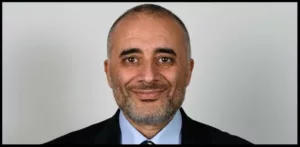Working Tirelessly for the Modernization of Tunisia
Actively supporting programs that fulfill his and his family’s long-standing dreams of doing all they can to modernize Tunisia, bring additional employment opportunities to their countrymen, and lift Tunisia’s living standards across the board.
Currently spearheading an effort to bring the major private-sector groups in Tunisia to work together, Tarek Bouchamaoui strives to fulfill a strategy aimed at transforming the country’s energy into a sustainable and ecologically-friendly resource that can support future economic and industrial growth. This would need to incorporate the entire mix of energy sources from renewable (sun, water, wind, and geothermal heat), to non-renewable (oil, gas, and coal).
Who Tarek Bouchamaoui Is
Underneath Tarek Bouchamaoui’s vast entrepreneurial skills and willingness to invest and assume risk lies an affable businessman and big soccer enthusiast who is also on the FIFA Council. His grandfather started a civil engineering firm that Tarek’s father in time changed to Hédi Bouchamaoui & Sons, a conglomerate that is steeply involved in the oil and gas sector, textiles and other businesses.
Tarek Bouchamoui, a man of magnetic charm mixed in with a streak of humility that belies his education and business acumen, is no stranger to the energy sector. For the past 25 years, he’s been managing director of HBS International, a thriving oil and gas exploration and production company in Egypt. He is additionally a shareholder and member on the boards of various companies and private equity funds, including HBG Holding Group (HBG), the family’s Holding conglomerate based in Tunisia.
Energy in Tunisia
For many years now, Tarek Bouchamaoui has known that Tunisia’s chief components of petroleum and gas are being depleted, that radical changes need to be incorporated to resurrect and energize that sector. For that to happen, optimal government conditions and legislation need to be brought to bear.
He points to other North African nations where rapid diversification of oil and gas resources is under way. For example, currently swarming with renewable energy projects to derive electricity from geothermal and solar power, Algeria has not had to depend on any resources coming out of the earth for the past 15 years.
In Morocco, the situation is reversed: the first chunk of solar power there came to light only in 2016 near the touristic city of Ouarzazate at the edge of the desert. That project is leading to the construction of one of the world’s largest solar power plants that would scale to a capacity of 580 MW, and at a final cost of 70 million euros.
The Bouchamaoui Group at the Forefront of Renewable Energy
In between the above two examples, the Bachamaoui Group is determined not to remain on the sidelines, particularly in view of government backing that has been manifest since Tunisia signed on to the Paris Accord on Climate in 2016—a worldwide pact on climate issues that focuses on a durable, just, dynamic, balanced, and legally binding agreement.
It is since Tunisia affixed its signature to that pact that the government has introduced a program for the stimulation of investments in private sector involvement with the required infrastructure for the production of energy resources.
Its 2016-2030 plan, known as the “National Strategy for the Development of Renewable Energy”, aims at increasing the share of renewable energy to the overall energy mix by 30%, to yield a total final capacity of 4000 MW. That is planned to occur in stages, with first an increase of 1000 MW by 2020 that is split into one third oil and two thirds sun power, and with the share of renewable to the overall energy mix to increase by 15%.
A Commitment to Green Energy and Sustainable Development
In his capacity as leading shareholder in HBS International and HBG Holding, Tarek Bouchamaoui pledged the Group to a social and responsible program aiming at “green” and sustainable development plans, starting with the deployment of the Group’s vast program in arboriculture in southern Tunisia.
His company, HBS International, had separately finalized a minority partnership with an investment fund for the capitalization of a photovoltaic (PV) power station in Egypt with, by 2019, an ultimate capacity of 250 MW.
HBG Bidding on a large project in Tunisia
On another front, it was indeed the ratification of the Paris Agreement on Climate that prompted the Group to join those who, at the end of 2017, responded to the call for bids on related projects that was launched by the Ministry of Energy, Mining, and Renewable Energies. For that bid, Tarek Bouchmaoui’s Group went into partnership with Akuo Energy, the leading independent French producer of renewable energy.
With this bold and ecologically-strategic move, and its representation of the Group as a leading player in Tunisia’s economy, Tarek Bouchamaoui intends to take HBG to a commanding position in Tunisia’s production of electricity from renewable energies, with more than 100 MW in capacity to be produced by 2025.
A 10 MW Solar Power Plant in Southern Tunisia
The Bouchamaoui family’s home turf is near Matmata, in the province of Gabès, in Southern Tunisia. It is therefore no surprise that this part of Tunisia became central to Tarek Bouchamaoui’s focus, particularly in view of the fact that the area is also relatively impoverished and with high unemployment.
With that in mind, and with an eye on escalating employment opportunities for the region’s youth through value-driven projects in the country’s interior sections, Tarek Bouchamaoui formed a project to build the first 10 MW solar power plan. This is over a 20-acre plot of land near where the family came from in Southern Tunisia, and it would be located near his arboriculture company in the municipality of Matmata.
These two connected projects, costing a little over 10 million euros, will thus promote the increased development of synergies, together with the emergence of a more dynamic ecosystem. The solar power station would employ about twenty people, comprising mostly technicians and engineers, every one of whom dear to Tarek Bouchamaoui’s heart.
A Vision towards the Rest of Africa
In Tarek Bouchamaoui’s estimates, the 10 MW photovoltaic (PV) solar power plant should be put operational by January 2020, its electricity to be sold to Tunisia’s Electricity and Gas Company through a 20-year purchasing contract. Future years are expected to witness an expansion of the solar power plant to increase production significantly.
In addition, and because the Group does not wish to restrict its renewable-energy investments to Tunisia, Tarek Bouchamaoui’s vision opens up towards financing interesting renewable-energy projects in other countries of the vast continent of Africa. In that context, it would all come down to fitting opportunities and encouraging energy factors.
The sunshine rate, exceeding in Tunisia 3000 hours per year, offers solid opportunities for the exploitation of different solar technologies, something that cannot be said for Tunisia’s wind factor. According to the Tunisian Association of Wind Energy, its total kinetic potential comes to 10 433 MW, compared to that of the solar potential that is estimated at 280 270 MW.
Taking Tunisia’s Renewable Energy Sector into the 21st Century
Limitations like that will nevertheless not restrict Tarek Bouchamaoui’s HBG from participating in calls for projects that will soon be launched by the Ministry of Energy, Mines, and Renewable Energies.
The most imminent such call for bids, set for August 2018, will be for the construction of a wind farm with a maximum capacity of 30 MW. The cost of that investment would be in the order of 50 million dinars (17 million euros), the project to be operational by the end of 2021.
It is noteworthy that, if participation in this call for tenders is favorable, this wind farm will also be located in the region of Gabes. Gabès is where the Bouchamaoui saga began and, by working diligently in taking Tunisia’s renewable energy sector into the 21st century, where it will doubtless continue.








